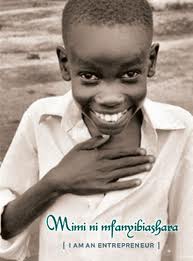I am so glad I attended the inaugural Green Breakfast Club event in Nairobi last Friday. The keynote speaker for the event was TMS Ruge, a social entrepreneur who also works with the World Bank as a Climate Change Project Strategist. He is also the founder of Project Diaspora. Given my interest in environmental issues, I found the talk to be very timely and very informative. Climate change is real and it is here with us, whether we like it or not. Agriculture still remains as the sole source of income for many Kenyans, and our GDP relies heavily on agriculture. With that said, I believe that technological advancements have placed us (emerging markets) at a very good place. We can develop, and avoid the huge environmental mistakes that western countries have made in the process of developing their economies.
Ruge’s talk hit on various topics, but for me, two things stood out:
a) The need to push for market-based solutions to address climate change; and
b) The urgent need to focus even more energy and resources on value-addition in agriculture
Within the Connect4Climate, the World Bank has brought together partners who are working in African countries mainly in climate-change related work. The project is providing a platform for knowledge sharing where people, especially the youth, are able to share how climate change is affecting their day-to-day activities. It is my hope that within this exchange, solutions to mitigation and adaptation can be cultivated. This also presents a unique opportunity for startups to think of ways that they can use to push products and services that address these issues and also keep in mind the lifecycle of the product/service and how each stage can be greener and more efficient.
Climate change will continue to affect the extent to which agriculture can continue to serve as the major source of income in emerging markets. Access to international markets and export of mostly raw materials has meant that the income from exports remains low. Ruge is currently working with Moringa farmers in Uganda, through Uganda Medicinal Plant Growers, Ltd, whereby he buys the produce from the farmers, processes it and exports high value products. In this way, the farmers are able to get a higher income. The key point in this project, for me, is that it has created a local solution to a local problem, using a market solution as opposed to aid. It was a great talk and I hope those who are in Nairobi can attend the second talk which will happen in April.
To learn more about Green Breakfast club and to locate one near you, click here, and to learn more about TMS Ruge and his work click here.





 Source: The SEVEN Fund
Source: The SEVEN Fund
